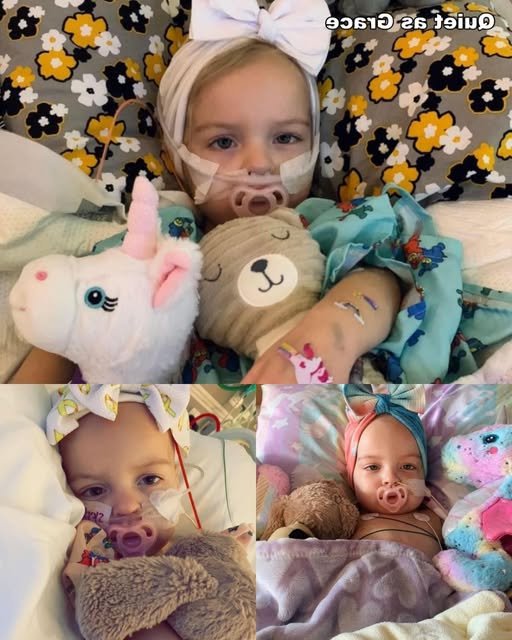Carver’s battle began before he ever took his first breath.
During his mother’s pregnancy, doctors discovered something no parent is ever prepared to hear.
Her baby’s heart was not formed the way it should be.


The arteries — the very lifelines that carried blood in and out of his heart — were reversed. It was a condition that would require immediate intervention after birth. Without surgery, he would not survive.
The news hung heavy over his parents.
They spent those last weeks of pregnancy filled not with joyful anticipation, but with fear. They dreamed of holding their baby, of hearing his first cry, of counting his tiny fingers and toes. But those dreams were clouded by the knowledge that their son would come into this world already fighting for his life.
When Carver was born, the clock began ticking.
At just six days old, he was wheeled into an operating room for open-heart surgery.
The risks were enormous.
The surgery carried possibilities no parent should have to face — complications, brain injury, even death. His parents sat in the waiting room, hearts breaking, clinging to hope while surgeons worked to repair the heart of their newborn baby.
The hours crawled by.
Finally, the doctors emerged. Carver had made it through the operation. But the road ahead would be anything but easy.
The days that followed were filled with tubes and monitors, machines beeping in a rhythm that became the family’s new lullaby. His fragile body was covered in bandages and wires, his chest marked by the scar that would forever tell the story of his fight.
Complications came quickly. Infections, setbacks, moments where his tiny body seemed too weak to continue.
His parents lived minute to minute, wondering if their little boy would survive.
But Carver proved stronger than every obstacle.
Each day, he fought. Each breath was a victory. Each small sign of progress — a stable heartbeat, a flicker of strength, a steady gaze — became cause for celebration.
Slowly, he began not only to survive, but to thrive.
As the years passed, Carver grew into a boy full of energy and life. He discovered a love for sports, where he could run and play with the same determination that had carried him through his earliest days. He found joy in books, letting stories take him to places where his body no longer felt fragile.
And he carried his journey with pride.
Carver began calling himself a “heart hero.” It wasn’t just a title. It was his truth. His scar was not something to hide, but something to honor. Proof of his courage. Proof of his survival.
But perhaps the most extraordinary part of Carver’s story is not just how he lived through his own battle, but how he chose to turn his scars into hope for others.
Recently, he collected hundreds of books for children still fighting in the hospital — children who, like him, had spent their earliest days surrounded by machines and fear. He wanted them to have the same comfort he found in stories, to remind them that even in hospital walls, imagination could carry them somewhere brighter.
Carver’s story is one of resilience.
From a fragile baby who faced open-heart surgery at six days old, to a boy who now gives back to others, he has shown what it means to turn pain into purpose.
He is a reminder that even the smallest fighters can grow into heroes.
A reminder that scars can tell stories of survival, not defeat.
And a reminder that sometimes, the children who begin life with the hardest battles go on to shine the brightest lights.
Carver is not just a survivor.
He is a giver.
A dreamer.
A heart hero — in every sense of the word.




